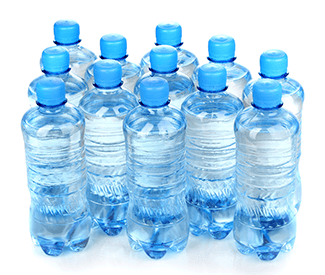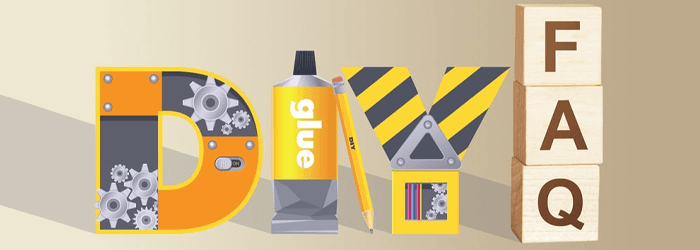PREPARING TO HUNKER DOWN AT HOME
Remember the great toilet paper famine of 2020? What if another stay-at-home order happens or another event that requires you and your family to stay home for a lengthy period? Will you have everything you need to get by? Do you know what you need to get by? And do you want to just get by, or be prepared?
The guide and list below are items we recommend you have in stock in the event you cannot leave the house and online delivery is not available.
For natural disaster preparedness in which utilities may temporarily unavailable, check out our Home Preparedness Guide. Things happen. A blown transformer 10 years ago left 300,000 without power in the summer for a few weeks because the replacement had to be trucked from California. The haul was so heavy the truck could only go five miles an hour. Construction crews were sent ahead to temporarily widen a few bridges for the semitrucks to get across. Every monsoon there are outages from blown over lines. Then the snowstorm Monday in Phoenix and Tuesday in Tucson left thousands without power for hours. Yup, things happen. Be prepared.
Water
Water is the most important item to have stocked at all times .

According to The Red Cross, the most reliable emergency supply of water is commercially bottled water.
Store at least two quarts of drinking water per person per day. Keep at least a three-day supply of water for each person in your household, more if you have a place to store it.
Keep bottled water in its original container, and do not open it until you need to use it. Pay attention to the expiration date. If filling from home, use food-grade water storage containers from surplus or camping supplies stores.
If you decide to re-use storage containers, choose two-liter, plastic, soft drink bottles – not plastic jugs or cardboard containers that had milk or fruit juice in them. The milk protein and fruit sugars cannot be adequately removed from these containers and provide an environment for bacterial growth when water is stored. Cardboard containers easily leak.
If you fear that the water will be turned off, fill up the bathtub as a resource for additional water storage. This a common practice in the Gulf Coast as hurricanes approach. Be mindful and keep young children away from the filled tub.
Food
The Red Cross recommends keeping two weeks’ worth of food available.
Purchase foods that have a long shelf-life. Canned fruit, vegetables, and fruit juices are ideal because they contain liquids. Check expiration dates and follow the practice of first-in, first-out. As you stock food, consider your family’s needs and preferences. Familiar foods can lift morale and give a feeling of security in times of stress.
Individuals with special diets and allergies will need particular attention, as will babies, toddlers, and the elderly. Nursing mothers may need liquid formula, in case they are unable to nurse. Canned dietetic foods, juices, and soups may be helpful for ill or elderly people.

Food Storage Tips For the Long Haul:
- Keep food in a dry, cool spot — a dark area if possible.
- Open food boxes and other re-sealable containers carefully so that you can close them tightly after each use.
- Wrap perishable foods such as cookies and crackers in plastic bags and then inside sealed containers.
- Store open packages of sugar, dried fruits, and nuts in screw-top jars or air-tight canisters.
- Inspect all food for signs of spoilage before use.
- Throw out swollen, dented, or corroded canned goods.
- Consider the following for your disaster supply kit:
- Ready-to-eat canned fruits, and vegetables.
- Canned juices, milk, soup (if powdered or concentrated store extra water), cheese spreads.
- Condiments and seasonings.
- High-energy foods (peanut butter, jelly, crackers, granola bars, trail mix, dried fruit, and nuts).
- Grains, rice, and beans last forever and go a long way!!
- Canned meats (tuna, SPAM, and Vienna sausage). We recommend Ready Hour, MaryJane’s Farm and Mountain House.
Pet Food & Supplies
Don’t forget about your furry (or scaly) family. Include their needs in your inventory.
- Non-perishable food and treats
- Water
- Litter
- Medications
Health & Wellness
We learned during the pandemic that it can be difficult to get through to a doctor or been seen in the ER or urgent care. The CDC recommends keeping 90 days of medication available. Ask your doctor to write a prescription for more than a month’s worth of medication.
Medication

Non-prescription drugs:
- Aspirin or another pain reliever
- Fever-reducing medication
- Anti-diarrhea medication
- Antacid (for stomach upset)
- Syrup of Ipecac (used to induce vomiting if advised by Poison Control Center)
- Cough and cold medicine
- Allergy medicine
- Vitamins
Prescription drugs:
- Heart and high blood pressure medication
- Insulin
- Basically, any medication that would cause a life-threatening situation if you didn’t have it.
Health Supplies
- Humidifier
- Thermometer
- Finger pulse oximeter
- First Aid Kit that includes:
- Sterile adhesive bandages in assorted sizes
- Tongue depressors for small splints
- Gauze pads (2-inch and 4-inch)
- Roller bandages (3-5 rolls)
- Tube of petroleum jelly or another lubricant
- Hypoallergenic adhesive tape
- Assorted sizes of safety pins
- Scissors
- Cleaning agent or soap
- Tweezers
- Latex gloves
- Needle
- Sunscreen
- Moist towelettes
- Alcohol antiseptic
- antibiotic ointment
Note: Store the first aid kit in a convenient place, and make sure everyone knows where it is.
It’s not just our bodies that need nourishment. Our minds do too. Card and board games keep minds busy can lessen anxiety. It’s more important now than ever to have good old-fashioned board games because with electronics, so many have forgotten how to entertain themselves. Click here for ideas .
Personal Supplies
- Toilet paper
- Face Tissue
- Towelettes
- Soap, liquid detergent
- Feminine supplies
- Incontinence products
- Personal hygiene items
- Denture care
- Contact lenses and supplies
- Extra eyeglasses
Household items
- Household chlorine bleach
- Disinfectant wipes
- Disinfectant cleaners
- Disinfectant spray
- Paper towels
- Dish soap
- Laundry detergent
- Garbage bags
Other
Keep a non-electric radio available in case of a power outage. Emergency solar and crank-powered radio is a must so you can stay informed of the situation in your area and . . . ‘cuz you gotta be able to hear Rosie On The House!!!
Prepare for emergency situations before they happen. Create a plan, stock up, and make sure everyone in the household is informed.
















